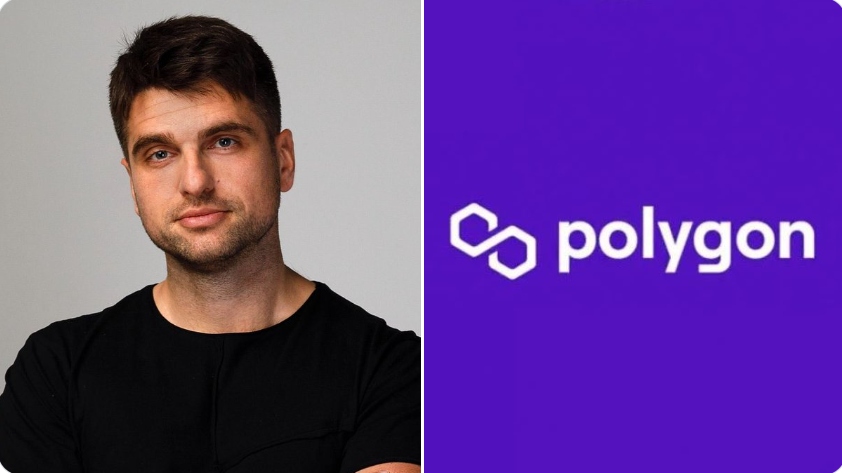May 24, 2025 — Mihailo Bjelic, one of the co-founders of Polygon, has officially stepped down from his role at Polygon Labs and resigned from the Polygon Foundation board. This marks the third co-founder exit in just two years, following Jaynti Kanani and Anurag Arjun, and has sparked discussions within the crypto community about what lies ahead for the popular Ethereum scaling solution.
Why Did Mihailo Bjelic Leave Polygon?
In a statement posted on social media platform X (formerly Twitter), Bjelic explained his decision to step away from daily operations. He noted that while the project has matured significantly, the founding team members now have different visions for its future.
“Polygon is doing well, but I feel I can’t do my best in this role anymore,” Bjelic said.
Despite stepping down, Bjelic expressed his continued support for the project as a community member and remains active in the broader blockchain space.
Polygon co-founder Sandeep Nailwal responded with praise, crediting Bjelic for playing a key role in the company’s growth. Meanwhile, speculation is building that Polygon may soon announce organizational changes, although nothing has been confirmed.
With the departures of Kanani, Arjun, and now Bjelic, only Sandeep Nailwal and Bilal Ashraf remain from the original team — signaling a major leadership shift.
A Brief History of Polygon
Founded in 2017 as Matic Network, Polygon was created to solve Ethereum’s key challenges — namely high fees and slow transaction speeds. The original co-founders were Jaynti Kanani, Sandeep Nailwal, Anurag Arjun, and Mihailo Bjelic.
Matic utilized a layer-2 scaling solution, designed to process transactions faster and more cheaply than Ethereum’s base layer.
In 2021, the project was rebranded as Polygon and expanded its mission: to become a multi-chain ecosystem compatible with Ethereum. The Polygon PoS (Proof-of-Stake) chain quickly gained traction among developers, especially in areas like DeFi and NFTs.
By 2023, Polygon launched zkEVM, a cutting-edge technology using zero-knowledge proofs to offer faster, more secure transactions — a major milestone in Ethereum scaling efforts.
Today, Polygon supports thousands of dApps, processes millions of transactions daily, and has partnered with major brands like Starbucks, Reddit, and Disney. Its native token, originally called MATIC, was rebranded to POL.
The People Behind Polygon: Where Are They Now?
Here’s a quick rundown of the Polygon founding team and where they stand today:
- Jaynti Kanani – The original CEO. Instrumental in developing early technology. Left in 2023 but remains respected in the industry.
- Sandeep Nailwal – The most public-facing figure. Continues to lead Polygon and remains active in Web3 advocacy, particularly in India.
- Anurag Arjun – Former head of product and strategy. Departed in 2023 to launch a new blockchain project called Avail.
- Mihailo Bjelic – A technical lead known for his work on zkEVM. Stepped down in 2025 but continues to support the project externally.
- Bilal Ashraf – A lesser-known co-founder who contributed in the early stages. Still involved in the project.
What’s Next for Polygon?
Bjelic’s exit comes at a pivotal time. Polygon is actively developing its Aggregation Layer, a new protocol designed to unify different chains within its ecosystem. This will help the network scale even further while maintaining low costs and high speed.
Despite the high-profile departures, Polygon still has a strong core team, a large developer base, and a growing community. Competing Ethereum layer-2 solutions like Optimism, Arbitrum, and zkSync continue to push the space forward — but Polygon remains one of the most mature and widely adopted platforms.
So far, no official replacement has been announced for Bjelic.
Final Thoughts
Mihailo Bjelic’s resignation marks the end of an important chapter in Polygon’s story. With three of its original co-founders now gone, the project’s leadership is evolving — but its technological momentum continues.
From its roots as Matic Network to becoming a foundational piece of Ethereum’s scaling infrastructure, Polygon has proven resilient and innovative. As the project leans further into zero-knowledge technology and multi-chain architecture, all eyes will be on how the remaining leadership navigates this next phase.
💬 Have thoughts on this leadership shakeup? Share your opinion in the comments for more Web3 coverage.



